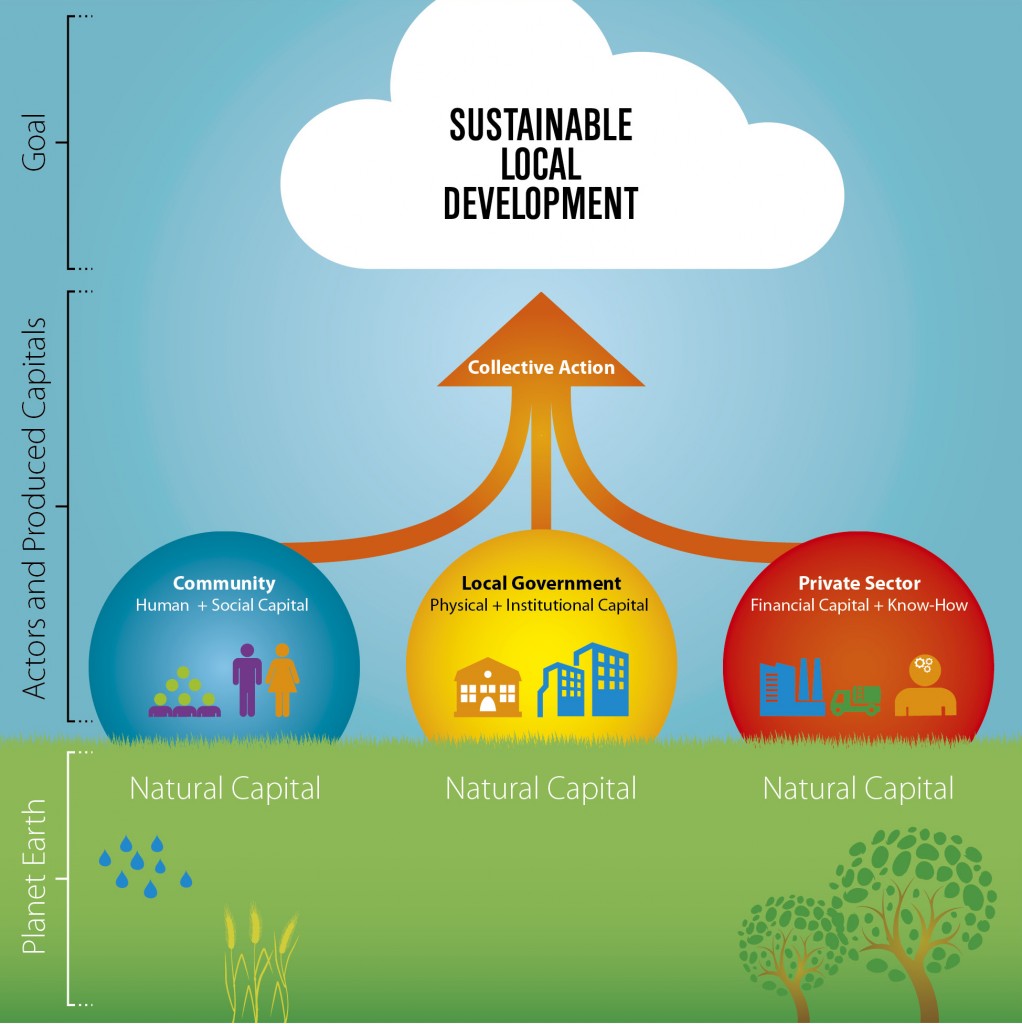
This handbook provides practical guidance to UNDP Country Offices on establishing sustainable local development as a pillar of their programming. It also aims to stimulate policy and programming discussion on sustainable development. Concrete cases, mostly from UNDP experience, and good practices from other countries well advanced in implementing local sustainable development initiatives are used to illustrate the messages provided therein and provide additional practical demonstrations.
Chapter 1 defines sustainable local development and explains UNDP’s comparative advantage in sustainable local development programming. Chapter 2 lays out a methodological guidance for setting up a sustainable local development programme. Chapter 3 provides management recommendations. Chapter 4 identifies key roles for the Country Office senior management and explains options to take to initiate sustainable local development programming.
Excerpts:
Here we propose integrated problem-solving approaches for four universal goals of sustainable local development that are based on current global discussions to define sustainable development goals, including the Report on the High-Level Panel of Eminent Persons on the Post-2015 Development Agenda:
- safeguard fair distribution and efficient use of public and natural resources;
- generate new jobs and ensure equal opportunity for employment;
- ensure equal access to quality public services;
- promote hones and responsive government.
Challenges to sustainable local development in Eastern Europe and Central Asia:
- unfinished governance reforms;
- increasing socioeconomic and gender inequality;
- frozen or simmering conflicts;
- resource depletion and environmental degradation.
UNDP’s comparative advantage in sustainable local development comes from:
- local governance/local development programming that is a basis for collective action among local stakeholders and empowering the most vulnerable groups;
- breadth of expertise to identify and implement where triple wins are possible, and to have an understanding of how an intervention in one area can have an unintended impact in another area;
- its reputation as a neutral player that can support country-led public administration reform and decentralization;
- universal presences on the ground, ability to facilitate south-south decentralized cooperation among sub-national governments, and access to professional networks and various international experiences in the area of sustainable development.